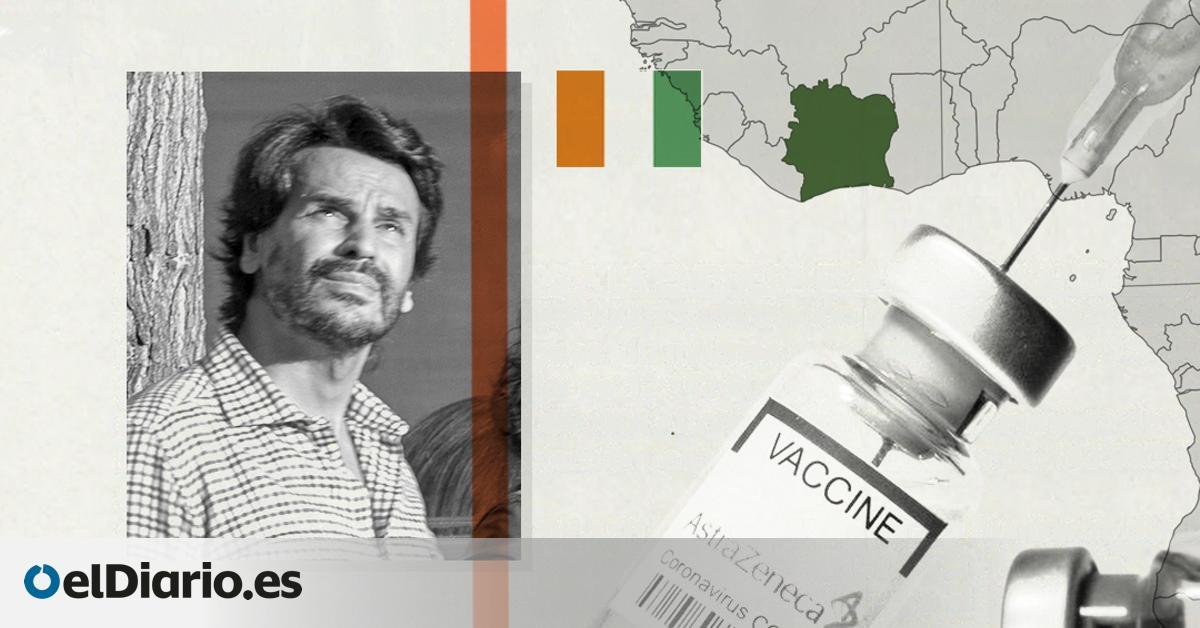
A false invoice worth 922,585 euros has uncovered a failed business of Alberto González Amador in the Ivory Coast. Isabel Díaz Ayuso’s partner acted as an intermediary in the sale of vaccines, an opportunity that opened up during a visit to the African country to explore other projects. The operation consisted of selling doses of AstraZeneca for 16.9 dollars (15.51 euros), when they did not cost more than three euros, in order to share more than two million in commissions with his partner. To do this, he turned to the company with which he had already earned two million euros in 2020 from the purchase and sale of masks.
The Government of the Ivory Coast frustrated the agreement due to the high price of the doses, but González Amador tried to convince the Treasury that the deal had caused him expenses that he never actually had. The invoice of 922,585 euros is part of the string of false documents that the Madrid president’s partner presented to the Tax Agency to try to pay less taxes.
The story of what happened is contained in the extensive report from the Tax Agency that has served as the basis for the complaint by the Madrid Provincial Prosecutor’s Office. And it is González Amador himself who gives all the details, through a letter sent to the Treasury inspection and which has been incorporated in its entirety into the judicial file.
In it, González Amador explains that in February 2021 he and the Mexican businessman Maximiliano Niederer drew up a plan to explore a possible business with the health authorities of the Ivory Coast, in order to expand their “health excellence” projects there. Advice on passing health checks in hospitals was their main source of income before the pandemic. The Government of that country does not pay much attention to them, but after weeks they tell them of their need to “acquire covid-19 vaccines” and other medications.
It is then that an operation is launched by Maxwell Cremona, González Amador’s company, to do everything possible to obtain vaccines and sell them to the Ivory Coast. Between April and May 2021, there are multi-party meetings between various companies, all with González Amador as a link. They end up contacting two companies that, they believe, can obtain vaccines. One of them is Mape Asesores, with whom they had already done the mask business in 2020.
According to the story that Ayuso’s partner gives to the Tax Agency, Mape “makes a request for vaccines to AstraZeneca” through a couple of letters, which were also sent to the inspection during the investigation. In parallel, González Amador and his partners travel to the Ivory Coast to meet with the health authorities. This visit occurs between May 31 and June 3, 2021.
Doses of three euros at 16.90 dollars
At the meeting, the Ministry of Health urges them to get the vaccines as soon as possible. Businessmen are beginning to get nervous because “there is no confirmation” that the doses can be purchased through one of the companies that made the requests to AstraZeneca. At that time the laboratories did not sell doses to private companies and only established deals directly with the states.
“We came to the conclusion that we had to go the other way,” says González Amador, “since the tender will be out in a few days.” The decision they make is to present another company – Tec Pharma Europe – to that competition with the hope that that company will end up getting the vaccines to later sell them to the Ivory Coast. The day of the tender is approaching, so those involved then establish the price and quantity of doses that would be sold to the Ivory Coast: “A maximum unit sales price of $16.90 is agreed upon.” In total, they offer 2,000,000 doses to the Ivory Coast, which implies a business of 33.8 million dollars.
From that price 40 cents per dose had to be subtracted for logistics costs. And then the commissions: Alberto González Amador set his at 7.5%, more than 2.5 million dollars if they were sold at the initially agreed price, of which a part would have to go to the Mexican Maximiliano Niederer for the management of he. AstraZeneca had begun distributing its vaccines in February 2021. As this drug had been developed with the University of Oxford, it was much cheaper than those made by Pfizer-BioNtech and Moderna: 2.9 euros per puncture compared to 17 or 31 euros of the firsts.
But the operation began to go wrong. The first documents that collect the price and quantity of the vaccines are never signed by the Ivory Coast authorities. They make a second offer. “After several conversations in subsequent days and after investigating the competition, we agreed to present $15 as the final price,” says Ayuso’s partner. In July 2021 they will submit to the tender.
They didn’t win the contest. The health authorities informed them shortly after that they had rejected their offer due to the price of the vaccines, higher than that of other companies that presented themselves.
The explanation of the failed business is accompanied by letters, emails and even photographs with the Minister of Health of the Ivory Coast, according to the report. The Tax Agency confesses its surprise at the number of different companies that intervened in the business and recognizes that it is not clear about the role of some, or why exactly they intended to charge.
Although the deal did not go ahead, González Amador presented the Treasury with an invoice for 922,585 euros from the company Gayani LTD, owned by Mexican businessman Maximiliano Niederer. In theory, it corresponds to his part of the commissions, but since the sale of the vaccines never occurred, González Amador actually only had to pay him 27,000 for various expenses.
The businessman, Ayuso’s partner, first said that he had provided the invoice because he was waiting to know the result of the tender, since they had appealed the Ivory Coast’s refusal. The Tax Agency denies this version and says that everything had already been resolved: “It is clear that on October 10, 2021, I already knew that they were not the successful bidders (…) We are faced with an invoice that contains a non-existent provision of services and whose reality has not been duly accredited.”
This is why the Tax Agency concludes that it is not an error, but rather that it detects an “organized pattern” aimed at “avoiding the taxation” that corresponded to it in the years 2020 and 2021. And to do so, it used “invoices that “are proven false or falsified.” elDiario.es has contacted González Amador to obtain his version of what happened, but he has not responded.
––––––
We dare with the most powerful because we know you are there. The journalistic investigation of elDiario.es is possible due to the support of our partners: more than 77,000 people. If you are one of them, we want to thank you: your help allows us to publish news like this, which almost no one tells about. And if you still don’t support us, or stopped doing so, this may be a good time to lend us a hand: we need all the support we can get. Become a member, become a member, of elDiario.es.
Source: www.eldiario.es

